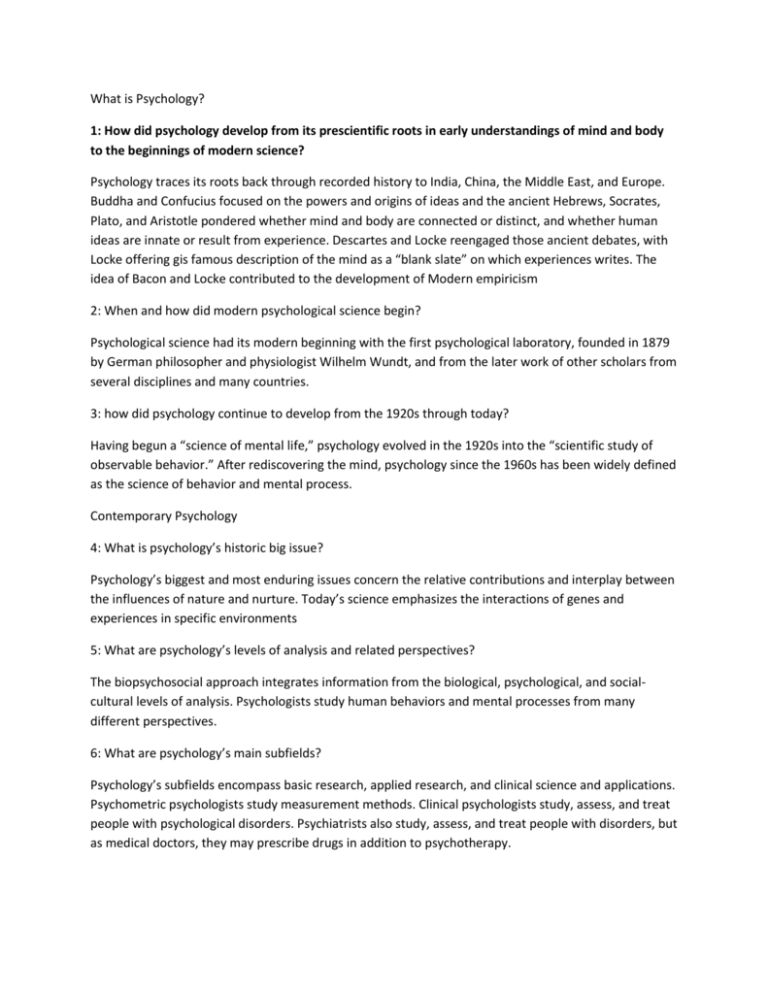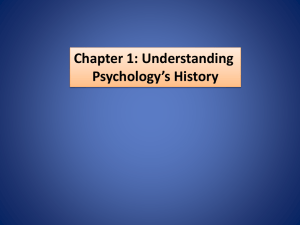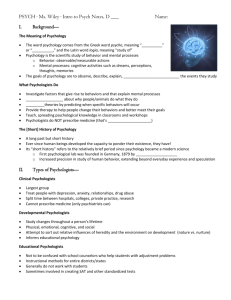What is Psychology? 1: How did psychology develop from its
advertisement

What is Psychology? 1: How did psychology develop from its prescientific roots in early understandings of mind and body to the beginnings of modern science? Psychology traces its roots back through recorded history to India, China, the Middle East, and Europe. Buddha and Confucius focused on the powers and origins of ideas and the ancient Hebrews, Socrates, Plato, and Aristotle pondered whether mind and body are connected or distinct, and whether human ideas are innate or result from experience. Descartes and Locke reengaged those ancient debates, with Locke offering gis famous description of the mind as a “blank slate” on which experiences writes. The idea of Bacon and Locke contributed to the development of Modern empiricism 2: When and how did modern psychological science begin? Psychological science had its modern beginning with the first psychological laboratory, founded in 1879 by German philosopher and physiologist Wilhelm Wundt, and from the later work of other scholars from several disciplines and many countries. 3: how did psychology continue to develop from the 1920s through today? Having begun a “science of mental life,” psychology evolved in the 1920s into the “scientific study of observable behavior.” After rediscovering the mind, psychology since the 1960s has been widely defined as the science of behavior and mental process. Contemporary Psychology 4: What is psychology’s historic big issue? Psychology’s biggest and most enduring issues concern the relative contributions and interplay between the influences of nature and nurture. Today’s science emphasizes the interactions of genes and experiences in specific environments 5: What are psychology’s levels of analysis and related perspectives? The biopsychosocial approach integrates information from the biological, psychological, and socialcultural levels of analysis. Psychologists study human behaviors and mental processes from many different perspectives. 6: What are psychology’s main subfields? Psychology’s subfields encompass basic research, applied research, and clinical science and applications. Psychometric psychologists study measurement methods. Clinical psychologists study, assess, and treat people with psychological disorders. Psychiatrists also study, assess, and treat people with disorders, but as medical doctors, they may prescribe drugs in addition to psychotherapy. 7: How can psychological principles help you as a student? Research has shown that learning memory are enhanced by active study. The SQ3R study method ( survey, question, read, rehearse, review) applies the principles derived from this research.







